
Seminar and information fair on land deprivation
The Society for Environment and Human Development (SEHD) organized a seminar and information fair on ‘Land Deprivation of Tea Communities and Adivasis of the Plains’ on 20 September 2015.
Land deprivation of tea communities and adivasis
Quazi Monzila Sultana and Sabrina Miti Gain
 “Land grabbers brutally murdered my father, Dhudu Soren, on 2 August 2014. My uncle, Goshai Soren was killed in 2011 and so was my grandfather, Fagu Soren, in 1964. The land grabbers killed them to take possession of 2.75 acres of our land. And now I fear that they will kill me too,” said Robi Soren (22) in a seminar on ‘Land Deprivation of Tea Communities and Adivasis of the Plains’. He cried while describing how the land grabbers brutally attacked his family at different times to take away their land.
“Land grabbers brutally murdered my father, Dhudu Soren, on 2 August 2014. My uncle, Goshai Soren was killed in 2011 and so was my grandfather, Fagu Soren, in 1964. The land grabbers killed them to take possession of 2.75 acres of our land. And now I fear that they will kill me too,” said Robi Soren (22) in a seminar on ‘Land Deprivation of Tea Communities and Adivasis of the Plains’. He cried while describing how the land grabbers brutally attacked his family at different times to take away their land.
The Society for Environment and Human Development (SEHD) organized the seminar on 20 September 2015 in Dhaka. More than a hundred representatives of 24 different communities participated in the seminar. Human rights activists, leaders from among adivasi and tea communities, researchers, representatives of different professional organizations, and journalists were among them. Philip Gain, the director of SEHD and Robindranath Soren, the president of Jatiyo Adivasi Parishad facilitated two sessions of the seminar.

 In his introductory remarks Philip Gain, director of Society for Environment and Human Development (SEHD), set the tone of the seminar by sharing some facts on reflections on the theme. He told the seminar the tea workers (120,000) spread over 160 tea gardens and with a population of about half a million have been living in the tea gardens of Bangladesh for over 150 years. What is unique of the tea communities of Bangladesh is they own no land they have their houses on and the cropland within the tea gardens they till.
In his introductory remarks Philip Gain, director of Society for Environment and Human Development (SEHD), set the tone of the seminar by sharing some facts on reflections on the theme. He told the seminar the tea workers (120,000) spread over 160 tea gardens and with a population of about half a million have been living in the tea gardens of Bangladesh for over 150 years. What is unique of the tea communities of Bangladesh is they own no land they have their houses on and the cropland within the tea gardens they till.
On the other hand, adivasis of the plains in the Northwest and North-centre are increasingly becoming victims of violence over land. Many of them have lost their land in the face of torture, murder, and other oppressions by land grabbers. They always allege that the administration, police and even the judiciary do not provide support to them they deserve.
Appalling stories of deprivation and attacks
 What made the seminar unique was horrible stories of land grabbing told by the victims who travelled from North Bengal and tea garden areas. Sicilia Hasda, a Mahle woman from Pachandor, a village in Tanore Upazila of Rajshahi district told her appalling story. Seven Mahle families, including that of Sicilia helplessly witnessed their houses on vested property demolished by their neighbouring Bangalees. The Mahles of Pachandor received the lease of the land first in 1971. The lease was last renewed in 2013.
What made the seminar unique was horrible stories of land grabbing told by the victims who travelled from North Bengal and tea garden areas. Sicilia Hasda, a Mahle woman from Pachandor, a village in Tanore Upazila of Rajshahi district told her appalling story. Seven Mahle families, including that of Sicilia helplessly witnessed their houses on vested property demolished by their neighbouring Bangalees. The Mahles of Pachandor received the lease of the land first in 1971. The lease was last renewed in 2013.
Some of their Bangalee neighbours, who migrated to this country during the Partition of India and are known as refugees to the local adivasis, demanded that they bought this land from someone else. They received an eviction decree from the court and demolished the houses of the seven Mahle families with the help of the police and the court on 30 March 2014.Sicilia cried and asked, “This land is everything that we have. Where shall we go if pushed out? Why do you come to us during elections and later tell us that we are not citizens of this country?”
Nilima Hembrom, a Santal woman from Chirakuta village of Parbatipur Upazila in Dinajpur narrated the inhuman attack and arson in her village. Bangalees burnt down their houses and ravaged their property after the death of a Bangalee youth in a clash between the Santals and the Bengalis on 24 January 2015, all because of a dispute over 19 acres of land in Chirakuta. Nineteen Santals were arrested after the incident.
Nilima Hembrom filed a case against the attackers. Seven Bengali attackers were arrested but they were released on bail seven days later. Nilima said, “They have money to spend, so they got bail. Our people got out of jail three months later. Four of us are still in prison.”
A cohort of representatives from the tea gardens participated in the seminar. The tea communities are people completely landless. However, gradually they are becoming more vocal about their land rights. Gita Goswami, a labour leader and formerly a pattiwali (tealeaf picker) talked about the khet land, land within tea gardens that the tea communities access to grow crops. “Our forefathers made the land cultivable by cleaning the jungle. If people in villages can own the land for living there, then why won’t we have the ownership of the land that we occupied and cultivated for a hundred years?”
 Dr. Hossain Zillur Rahman, a premiere economist of the country and former advisor to caretaker government explained the underlying factors and context of land deprivation of tea workers and ethnic communities. “Economic poverty, vulnerability, and marginalization are three dimensions of poverty,” said Dr. Rahman. “Bangladesh has well addressed economic poverty and vulnerability. Addressing marginality of the tea workers and ethnic communities remains to be a challenge.”
Dr. Hossain Zillur Rahman, a premiere economist of the country and former advisor to caretaker government explained the underlying factors and context of land deprivation of tea workers and ethnic communities. “Economic poverty, vulnerability, and marginalization are three dimensions of poverty,” said Dr. Rahman. “Bangladesh has well addressed economic poverty and vulnerability. Addressing marginality of the tea workers and ethnic communities remains to be a challenge.”
He blamed statistical invisibility as one of the main reasons behind it. He mentioned that there is no official record of the actual population of the tea communities and adivasis in any governmental statistics. He added that the other driving forces of marginality are ethnic specificity, disappearing occupation, vulnerable land rights, and social stigma.
Dr. Tanzimuddin Khan, associate professor of Dhaka University said, “The identity and recognition of adivasis are closely related with their land rights. However, the state is putting more emphasis on the Bangalee nationality and isolating the adivasis.” He commented that the marginal communities are becoming victims of discrimination and oppression because of the inhuman nature of the state.
SEZ in tea garden: The government’s decision to establish a Special Economic Zone in 511 acres of khet land in Chandpore Tea Estate, a tea garden of Duncan Brothers in Chunarughat Upazila in Hobiganj was discussed with importance in the seminar. Khet land is a significant source of food security for the tea workers whose daily wage is Tk.69. Philip Gain informed that the government officials involved did not discuss this with the users of the khet land or even the garden owners and they are unwilling to do so.
 Swapan Santal, who came from Chandpore Tea Estate, asked for help from the citizens’ groups. “When we went to talk to the upazila chairman about the economic zone, he castigated us. He even said that we do not belong to this country. If that’s true then why do we vote?”
Swapan Santal, who came from Chandpore Tea Estate, asked for help from the citizens’ groups. “When we went to talk to the upazila chairman about the economic zone, he castigated us. He even said that we do not belong to this country. If that’s true then why do we vote?”
Anu Muhammad, professor of Jahangirnagar University, advised, “We need to draw the attention of the political leaders who are supposed to oversee these issues. Many times they are not even aware of the problems. They need to have contact with the media and influential people of the government.” He added, “Just being aware is not enough, the land disputes need to be solved by exercising your legal rights.” A proposal was made by the speakers of the seminar to issue a statement on behalf of the citizens asking the government to clarify the issue of the SEZ in Chandpore Tea Estate.
Road to solution: Solutions to the land deprivation of tea workers and adivasis of the plains were discussed in the seminar as well. Some among the adivasis have recovered their lost land with their own efforts in legal fights. One of them is Bichitra Tirki from Jinarpur village of Parbatipur Union of Chapainawabganj. The Oraon woman is now a role model in the adivasi society. She has recovered 48 bighas (one bigha equals to 33 decimals) of her family that the land grabbers illegally occupied with false documents in hand.
 “My husband was traumatized by the land grabbers and eventually died for the land which I recovered later. They lost the cases in the lower court and now have appealed to the high court. When I was working on my land on 4 August 2014, they attacked me. They physically assaulted and raped me,” reported Bichitra, who is now stronger than ever.
“My husband was traumatized by the land grabbers and eventually died for the land which I recovered later. They lost the cases in the lower court and now have appealed to the high court. When I was working on my land on 4 August 2014, they attacked me. They physically assaulted and raped me,” reported Bichitra, who is now stronger than ever.
Barrister Jyotirmoy Barua discussed the importance of keeping land-related documents straight and learning about the laws regarding land issues. He also shared important information about land ownership, “A proper land ownership means when someone has occupied the land for 25 years continuously. However, there is no alternative to knowing the laws in order to resolve land disputes.”
As it is necessary to collect data and regularly writing reports, so is to influence the government to find the solutions to land disputes of tea workers and adivasis. In sharing his experience Dr. Hossain Zillur Rahman said, “When we talk to the representatives in union and upazila level, we never hear any discussion about the problems of these people.”
 “In order to address the issues of tea communities, adivasis and other excluded communities, Society for Environment and Human Development (SEHD) and Power and Participation Resource Center (PPRC) are doing the ground work to establish a national resource center and a national platform to give them a voice and raise their issues”, Dr. Rahman told the seminar.
“In order to address the issues of tea communities, adivasis and other excluded communities, Society for Environment and Human Development (SEHD) and Power and Participation Resource Center (PPRC) are doing the ground work to establish a national resource center and a national platform to give them a voice and raise their issues”, Dr. Rahman told the seminar.
Dr. Tanzimuddin Khan discussed the importance of becoming politically empowered, “If you become politically powerful, not only you would be an important vote bank but also it would be easier for you to solve your problems.”
Alongside the seminar, SEHD organized an information on land issues. SEHD, Human Development Research Center (HDRC), ALRD, BARCIK, Caritas Bangladesh, Toru Pallab, SIL Bangladesh, and Kapaeeng Foundation participated in the fair with their books and other productions on adivasis and tea workers.
The writers are research staff of Society for Environment and Human Development (SEHD).
http://www.dhakacourier.com.bd/land-deprivation-of-tea-communities-and-adivasis/
http://www.thedailystar.net/editorial/platform-represent-marginalised-groups-146980
http://www.thedailystar.net/city/marginalised-groups-ngos-should-merge-rights-efforts-146410

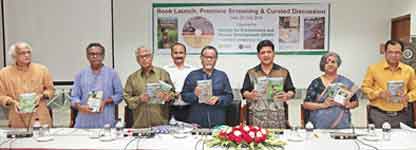
 Prof. Anu criticized the way the government setting up a coal-fired power plant near the Sundarbans, the largest contiguous mangrove forest in the world. Such plant [in Rampal in Bagerhat district] poses a serious threat to the Sundarbans. To make the situation worse Orion Group, a private company is planning to set up another 565 megawatt coal-fired power plant next to Rampal Power Plant and even closer to the Sundarbans [at Biddarbaon, Mongla) without following environmental rules and regulations.”
Prof. Anu criticized the way the government setting up a coal-fired power plant near the Sundarbans, the largest contiguous mangrove forest in the world. Such plant [in Rampal in Bagerhat district] poses a serious threat to the Sundarbans. To make the situation worse Orion Group, a private company is planning to set up another 565 megawatt coal-fired power plant next to Rampal Power Plant and even closer to the Sundarbans [at Biddarbaon, Mongla) without following environmental rules and regulations.”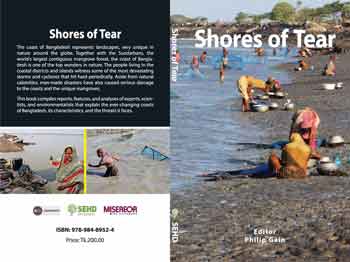
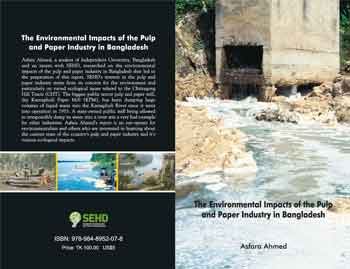
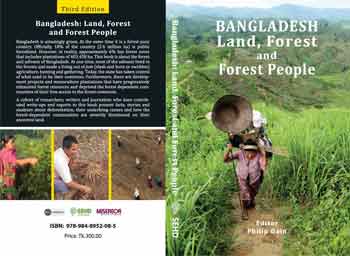
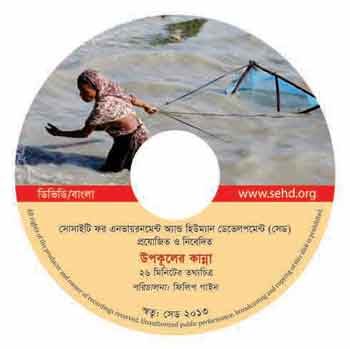

 Capacity Building of Tea Workers and little known ethnic communities in Bangladesh” is implemented by the Society for Environment and Human Development (SEHD). The European Union finances the project under the European Instrument for Democracy and Human Rights. ICCO COOPERATION the Netherlands provides 20% of the total budget of the project.
Capacity Building of Tea Workers and little known ethnic communities in Bangladesh” is implemented by the Society for Environment and Human Development (SEHD). The European Union finances the project under the European Instrument for Democracy and Human Rights. ICCO COOPERATION the Netherlands provides 20% of the total budget of the project. “Why does the European Union have to come in here and look at this question? Because we are concerned about justice, worldwide. And this particular example is worse than other countries; I have been in the Africa, in Tanzania; I have seen the people who work there, I was in Cameroon, I have seen people who work there; and in this country (Bangladesh) they have been treated worse. That’s a fact, we all know it. Why are people being paid so little, I don’t know, I don’t get it,” Ambassador continued with apparent surprise. He called upon everybody to work together to come out of the model that was introduced by, as dubbed by many, the British colonizers, and ensure that the workers get enough money so they can send their children to schools, have a decent life, have medical care and not live a back-breaking life they live today.
“Why does the European Union have to come in here and look at this question? Because we are concerned about justice, worldwide. And this particular example is worse than other countries; I have been in the Africa, in Tanzania; I have seen the people who work there, I was in Cameroon, I have seen people who work there; and in this country (Bangladesh) they have been treated worse. That’s a fact, we all know it. Why are people being paid so little, I don’t know, I don’t get it,” Ambassador continued with apparent surprise. He called upon everybody to work together to come out of the model that was introduced by, as dubbed by many, the British colonizers, and ensure that the workers get enough money so they can send their children to schools, have a decent life, have medical care and not live a back-breaking life they live today. After the meeting, the ambassador visited a labour line in Alynagar Tea Estate to see the living conditions of tea workers in his own eyes. There he was welcomed very warmly by the tea workers and their families.
After the meeting, the ambassador visited a labour line in Alynagar Tea Estate to see the living conditions of tea workers in his own eyes. There he was welcomed very warmly by the tea workers and their families.
 Kairi, a labor leader and a staff of SEHD said, according to the law, workers of all industries are entitled to 10 days of casual leave, which is not applicable to tea workers. Besides, tea workers enjoy one day of annual leave for every 22 days of work while workers of other industries get one day leave against every 18 days work.
Kairi, a labor leader and a staff of SEHD said, according to the law, workers of all industries are entitled to 10 days of casual leave, which is not applicable to tea workers. Besides, tea workers enjoy one day of annual leave for every 22 days of work while workers of other industries get one day leave against every 18 days work. Beside sharing information with others and learning from avid researchers, participants received hands-on experience in conducting focus group discussion (FGD), face-to-face interview, and writing case studies in the unique training. Each of them was grouped with a small team that visited a couple of labor lines in five tea gardens. Every team conducted a FGD with Panchayet (an elected body of representatives of tea workers to look after various issues of a labor line) members and filled in a questionnaire that was designed to collect data on socio-economic status and ethnic composition of tea communities. Each participant also interviewed at least one tea worker and wrote case studies on issues ranging from health to education, livelihood to landlessness.
Beside sharing information with others and learning from avid researchers, participants received hands-on experience in conducting focus group discussion (FGD), face-to-face interview, and writing case studies in the unique training. Each of them was grouped with a small team that visited a couple of labor lines in five tea gardens. Every team conducted a FGD with Panchayet (an elected body of representatives of tea workers to look after various issues of a labor line) members and filled in a questionnaire that was designed to collect data on socio-economic status and ethnic composition of tea communities. Each participant also interviewed at least one tea worker and wrote case studies on issues ranging from health to education, livelihood to landlessness. In response to such query DDL confessed his limitations as a government official and said that he would hold elections if directed by the government.
In response to such query DDL confessed his limitations as a government official and said that he would hold elections if directed by the government. Md. Haroon-Or-Rashid Sarker, director, Project Development Unit (PDU), Bangladesh Tea Board said that the owners of tea gardens make high profit. He opined that if the owners of tea gardens spend more from this huge profit for the workers, it will benefit the industry itself in the end. “The ration provided to the workers is of inferior quality. If the workers are sick all the time, it hampers production. These problems can be solved easily,” Rashid said.
Md. Haroon-Or-Rashid Sarker, director, Project Development Unit (PDU), Bangladesh Tea Board said that the owners of tea gardens make high profit. He opined that if the owners of tea gardens spend more from this huge profit for the workers, it will benefit the industry itself in the end. “The ration provided to the workers is of inferior quality. If the workers are sick all the time, it hampers production. These problems can be solved easily,” Rashid said.



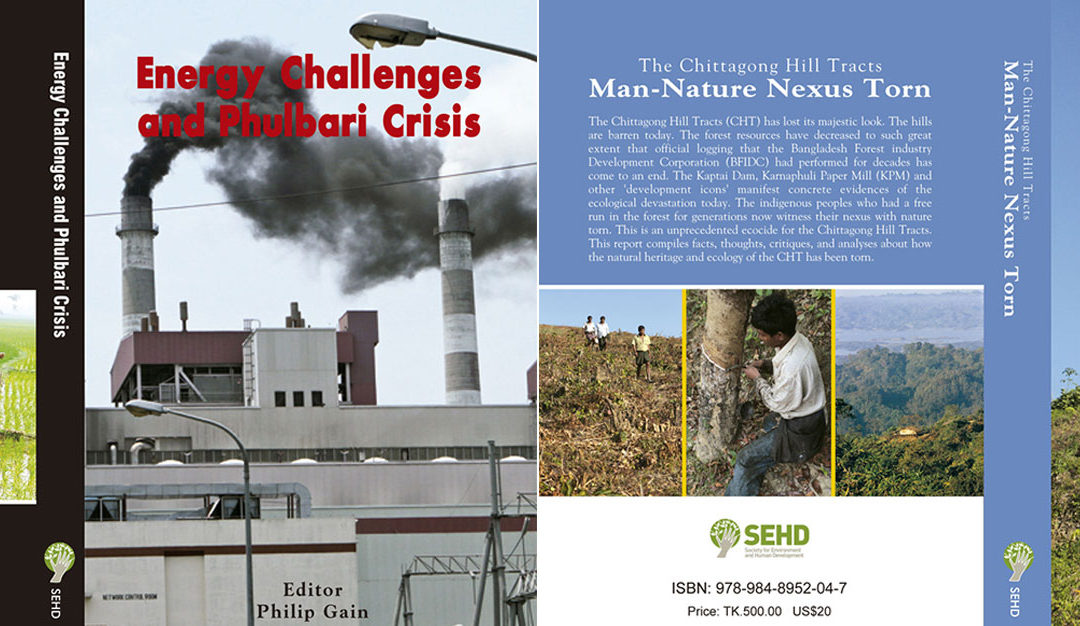
 “The government should not take any decision in haste allowing open-pit coal mining at Phulbari in Dinajpur. It should take decision on the issue only after due consideration of different aspects involved and in consultation with national and international experts,” urged Justice Habibur Rahman at the book launch and seminar organized by Society for Environment and Human Development (SEHD) at the National Press Club in Dhaka on 26 June 2013.
“The government should not take any decision in haste allowing open-pit coal mining at Phulbari in Dinajpur. It should take decision on the issue only after due consideration of different aspects involved and in consultation with national and international experts,” urged Justice Habibur Rahman at the book launch and seminar organized by Society for Environment and Human Development (SEHD) at the National Press Club in Dhaka on 26 June 2013.
